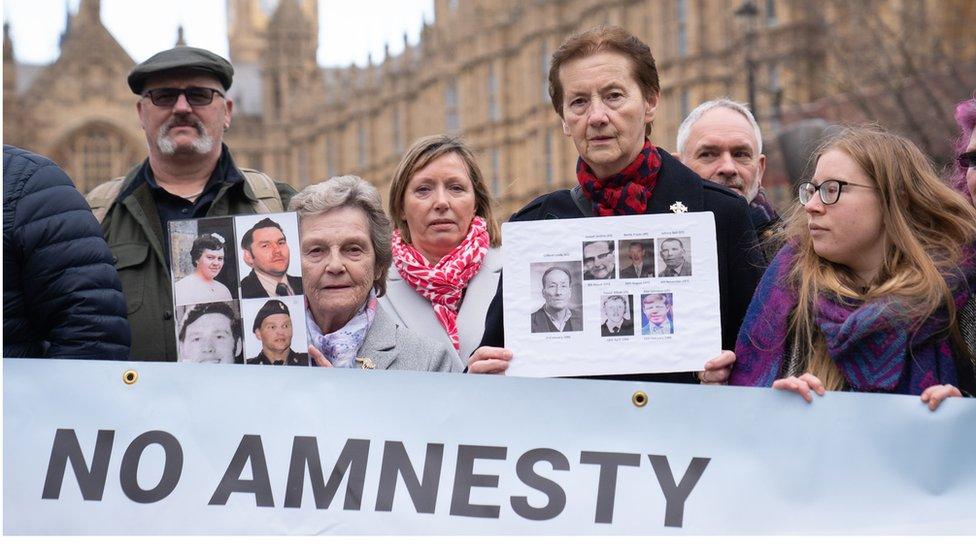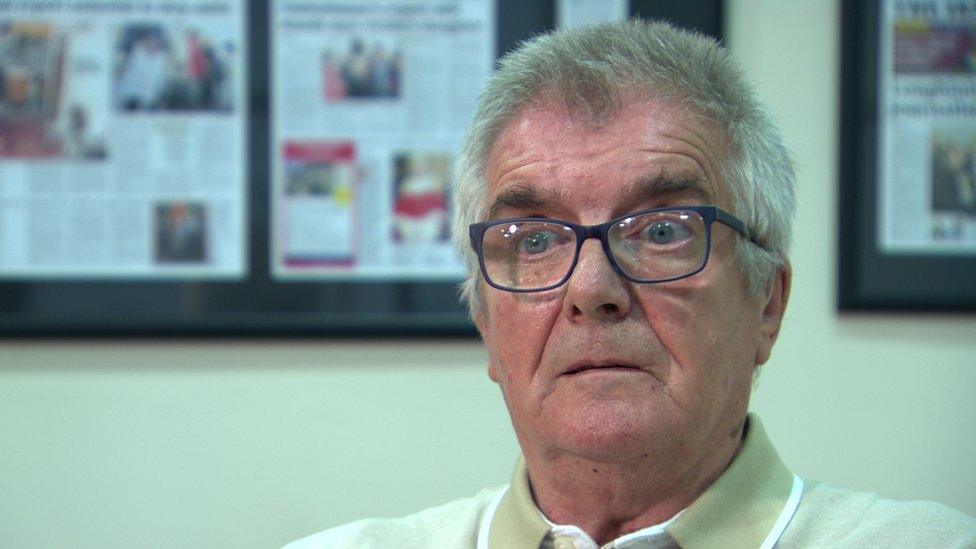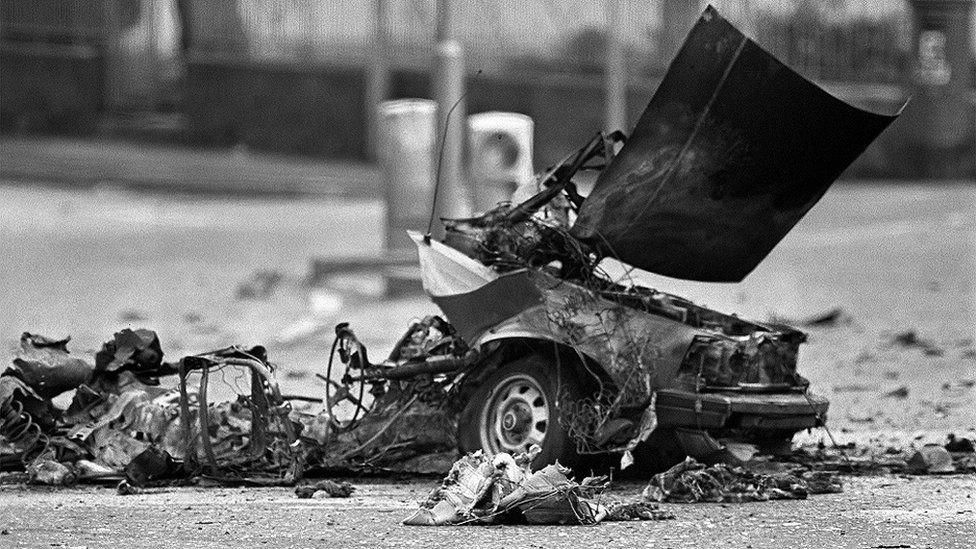Troubles law: Legal challenges will be considered, says judge
- Published

Victims' groups have campaigned against the government's method of handling the legacy of the Troubles
A High Court judge has said challenges to the UK government's controversial new law for dealing with the legacy of the Troubles will be considered.
The new legislation offers a conditional amnesty to those accused of killings during the Troubles and will stop new court cases and inquests relating to that era.
It is facing numerous legal challenges.
Opponents, including victims' groups and Stormont's political parties, argue that it will remove access to justice.
On Wednesday the judge urged lawyers to identify lead cases in a bid to streamline and fast-track legal action being taken against Northern Ireland Troubles (Legacy and Reconciliation) Act, which received Royal Assent this week.
Sixteen victims of the conflict have now lodged applications for judicial review of the law.
The government has described the new act as an attempt to draw a line under the events of the past.
Lawyers for those mounting the challenges claim the legislation is unconstitutional, unlawful and incompatible with the Human Rights Act.
The legal proceedings came before the High Court for the first time on Wednesday.
A barrister representing the government argued that the "proliferation" of cases raised similar points.
He said they covered events from 1971 to the mid-1990s and he indicated that in some there may be a dispute over the legally-required status of being a victim.

One of those mounting a legal challenge is Billy Campbell, whose 19-year-old brother Tony was shot dead by the Army in 1973
He suggesting that lead cases should be selected for judicial scrutiny.
"There is a great degree of overlap and commonality," he said.
"Every single one I have seen has sought expedition but it will not be possible if the court has to address 16 or more judicial review applications."
'All arguments will be considered'
The judge agreed with the need to identify individual challenges which address all of the relevant issues.
"There is absolutely no benefit to anybody in multiple cases arguing exactly the same point," he said.
However he added that "all legal arguments will be considered by the court".
"I want to do so as expeditiously as possible to ensure all legal arguments can be adjudicated upon," he said.
Proceedings were adjourned until 28 September, at which stage the lead cases are expected to be confirmed.
The new law will allow that for anyone who cooperates with investigations run by a new truth-recovery body, the Independent Commission for Reconciliation and Information Recovery (ICRIR).
The ICRIR will have a £250m budget and a staff of several hundred people. It will be led by retired judge Sir Declan Morgan and will run for five years.
Northern Ireland Secretary Chris Heaton-Harris has said that the controversial legislation is aimed at delivering better outcomes for those most affected by the Troubles while helping society move forward.
Related topics
- Published6 September 2023

- Published5 September 2023
